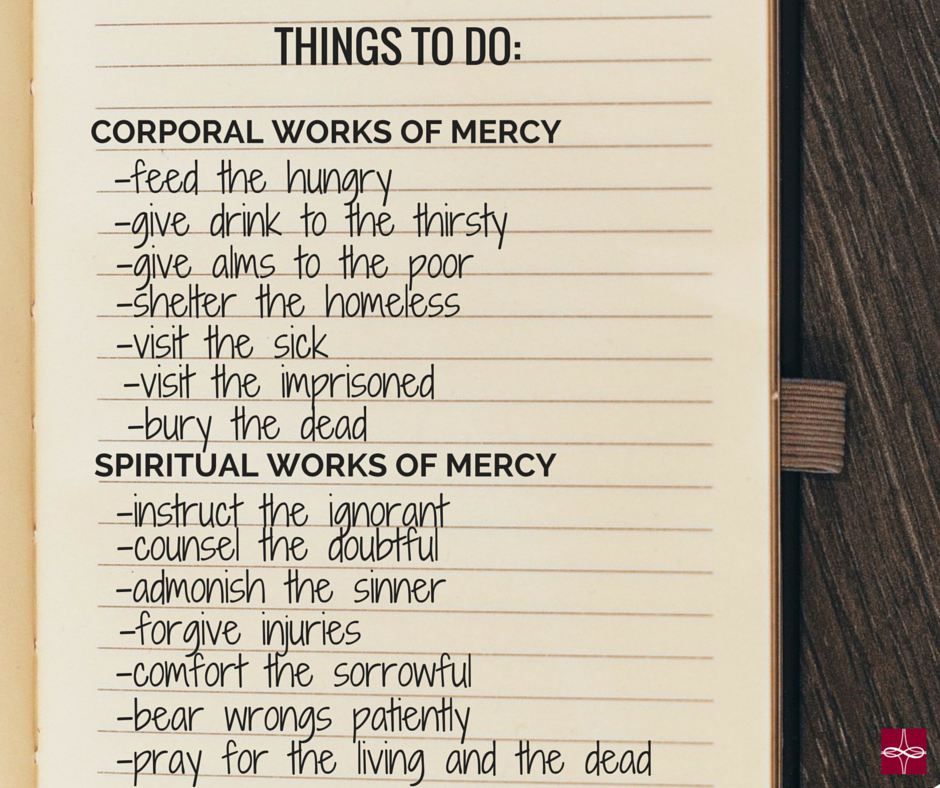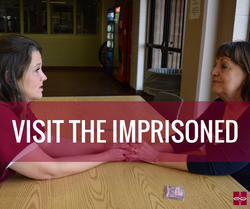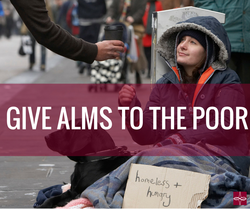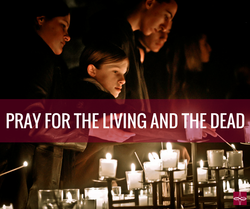The Corporal and Spiritual Works of MercyDuring this Extraordinary Jubilee of Mercy, which began on December 8th of 2015, Pope Francis has invited us to grow in our understanding and experience of mercy. Mercy can be described as love which continues to love in the face of rejection. It is unmerited, unwarranted love. God, Who is Love itself, is the perfect combination of both justice and mercy. All of Scripture recounts His merciful plan of salvation--what He did in spite of rejection to love His people and call them back to Himself for all eternity. The most beautiful account in Scripture of the mercy of God is recounted in the parable of the prodigal son. The father in the narrative represents God. His son, who has taken his inheritance prematurely (effectively signifying that his father was dead to him), squanders it. Left in destitution and despair, he decided to come back to his father's house, preferring the life of a servant to his current condition. The father has been waiting anxiously for the son's return, looking on the horizon day after day with hope and longing for their reunion. He runs out to his son, embraces him and celebrates his return. This is God himself who longs to be reunited with us.
|
"At times we are called to gaze even more attentively on mercy so that we may become a more effective sign of the Father’s action in our lives," Pope Francis wrote. During this Year of Mercy, let us encounter the mercy of God more deeply in order to live as witnesses of mercy, love and joy. The corporal and spiritual works of mercy, listed below, will help us as we strive to continue to grow in our understanding of being "merciful like the Father."
Corporal Works of Mercy
Spiritual Works of Mercy
















